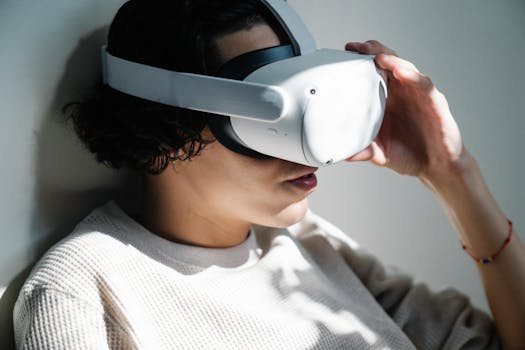
“
Wearable Tech and Mental Health: Innovations Shaping Emotional Wellbeing in 2026
Wearable Tech and Mental Health are becoming increasingly intertwined as technology continues to advance and play a larger role in our daily lives. As we move into 2026, it’s essential to explore the latest innovations shaping emotional wellbeing and mental health. In this article, we’ll delve into the world of wearable tech and its impact on mental health care.
Introduction to Wearable Tech and Mental Health

The concept of wearable tech is not new, but its application in mental health care is a rapidly evolving field. Wearable devices such as smartwatches, fitness trackers, and smart glasses are being used to monitor and manage mental health. These devices can track various physiological and behavioral metrics, providing valuable insights into an individual’s mental state.
Types of Wearable Tech for Mental Health

There are several types of wearable tech being used for mental health care, including:
- Smartwatches: Many smartwatches now come with built-in mental health tracking features, such as stress monitoring and mood tracking.
- Fitness Trackers: Fitness trackers can monitor physical activity, sleep patterns, and other health metrics that can impact mental health.
- Smart Glasses: Smart glasses can provide users with subtle reminders and cues to help manage anxiety and other mental health conditions.
- Brain-Computer Interfaces (BCIs): BCIs are being developed to enable people to control devices with their thoughts, which can be particularly helpful for individuals with paralysis or other motor disorders.
Applications of Wearable Tech in Mental Health Care

Wearable tech is being used in a variety of ways to support mental health care, including:
- Stress Management: Wearable devices can track stress levels and provide personalized recommendations for stress reduction.
- Anxiety Monitoring: Wearable devices can monitor anxiety levels and provide alerts and reminders to help individuals manage their anxiety.
- Mood Tracking: Wearable devices can track mood patterns and provide insights into an individual’s mental state.
- Sleep Management: Wearable devices can track sleep patterns and provide recommendations for improving sleep quality.
Benefits of Wearable Tech for Mental Health

The use of wearable tech in mental health care has several benefits, including:
- Increased Accessibility: Wearable devices can provide mental health support to individuals in remote or underserved areas.
- Improved Engagement: Wearable devices can encourage individuals to take a more active role in their mental health care.
- Personalized Care: Wearable devices can provide personalized recommendations and insights tailored to an individual’s specific needs.
- Cost-Effective: Wearable devices can be a cost-effective alternative to traditional mental health care methods.
Challenges and Limitations of Wearable Tech for Mental Health

While wearable tech has the potential to revolutionize mental health care, there are several challenges and limitations to consider, including:
- Data Accuracy: Wearable devices can be prone to errors and inaccuracies, which can impact the effectiveness of mental health care.
- Privacy Concerns: Wearable devices can raise concerns about data privacy and security. For more on this, read about navigating privacy in 2026.
- Regulation: The use of wearable tech in mental health care is not yet fully regulated, which can create uncertainty and inconsistencies.
- Accessibility: Wearable devices can be expensive and inaccessible to some individuals, particularly those in low-income communities.
Future Directions for Wearable Tech and Mental Health

As wearable tech continues to evolve, we can expect to see new and innovative applications in mental health care. Some potential future directions include:
- Artificial Intelligence (AI): AI-powered wearable devices can provide more accurate and personalized mental health insights.
- Virtual Reality (VR): VR technology can be used to create immersive and interactive mental health experiences.
- 5G Connectivity: 5G connectivity can enable faster and more reliable data transfer, which can improve the effectiveness of wearable devices.
Conclusion

In conclusion, wearable tech has the potential to revolutionize mental health care by providing accessible, personalized, and cost-effective support. As we move into 2026, it’s essential to continue exploring the latest innovations and applications of wearable tech in mental health care. By addressing the challenges and limitations of wearable tech, we can unlock its full potential and create a brighter future for mental health care.






